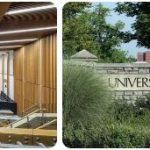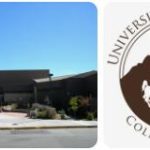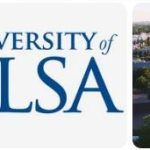The University of Toledo College of Law was established in 1906 and is one of the oldest law schools in Ohio. The college has had a long history of producing successful lawyers and public servants, many of whom have gone on to serve in prominent positions in the government, judiciary, and private sector. In its early years, the college operated under the name Toledo Law School, offering courses in common law as well as criminal law. In 1923, the school was renamed to its current title and began offering evening classes for working professionals. Over the years, it has developed an excellent reputation for providing quality legal education and preparing students for successful careers in a range of fields. The college has also been active in research and is home to several scholarly journals devoted to legal topics. It also offers an array of clinical programs that give students hands-on experience with real-world legal issues. Today, the University of Toledo College of Law continues to be a leader among Ohio’s law schools, offering an outstanding curriculum and providing students with a wealth of opportunities for success after graduation.
University of Toledo College of Law is located in the state of Ohio. As one of the leading law programs, University of Toledo College of Law has a high average LSAT score of 150-156 when recruiting new students. As a return, the median starting salary for law graduates reaches $70,000 per year. See the following table for detailed admissions information and career profiles of University of Toledo College of Law.
Admissions: University of Toledo
The University of Toledo College of Law has an attractive admissions rate. The school has a median LSAT score of 153, which is slightly above the national average. Additionally, the college features a median undergraduate GPA of 3.28 and an acceptance rate of 53%. This means that a large percentage of applicants are accepted into the program each year. Furthermore, the school is committed to creating a diverse student body and thus accepts students from all backgrounds and educational levels. The university also offers financial aid packages to help students pay for their education. For those accepted into the program, the average amount of financial aid offered is $16,000. This amount can vary depending on individual circumstances and needs. The University of Toledo College of Law also provides career services to help graduates find employment after graduation. These services include resume workshops, networking events, job fairs, and more. With these resources available to students, they have a greater chance at finding success in their chosen field after graduating from the college’s law program.
| Fall 2019 Admissions and Enrollment Statistics | |
|---|---|
| Total number of full- and part-time applicants | 868 |
| Total number of full- and part-time acceptances | 521 |
| Overall acceptance rate | 60.0% |
| Total number of full- and part-time first-year students enrolled | 181 |
| Number of full-time program applicants | 639 |
| Number of full-time program acceptances | 367 |
| Full-time acceptance rate | 57.4% |
| Number of first-year full-time students enrolled | 99 |
| Number of part-time program applicants | 229 |
| Number of part-time program acceptances | 154 |
| Part-time acceptance rate | 67.2% |
| Number of first-year part-time students enrolled | 82 |
| Fall 2019 GPA and LSAT Scores | |
| 25th-75th percentile GPA scores for all students | 2.92-3.54 |
| 25th-75th percentile LSAT scores for all students | 150-156 |
| 25th-75th percentile undergraduate GPA for full-time students | 3.07-3.59 |
| 25th-75th percentile LSAT scores for full-time students | 152-158 |
| 25th-75th percentile undergraduate GPA for part-time students | 2.6-3.36 |
| 25th-75th percentile LSAT scores for part-time students | 149-152 |
Careers: University of Toledo
| Bar Statistics (Winter and Summer 2018 administrations) | |
|---|---|
| State where the greatest number of first-time test takers took the bar | OH |
| School’s bar passage rate for first-time test takers | 87.8% |
| Statewide bar passage rate for first-time test takers | 87.8% |
| Class of 2018 Graduates | |
| Total graduates | 143 |
| Graduates employed at graduation | 88.5% |
| Graduates known to be employed nine months after graduation | 96.3% |
| Starting Salaries of 2018 Graduates Employed Full-time | |
| 25th percentile private sector starting salary | $55,000 |
| Median private sector starting salary | $70,000 |
| 75th percentile private sector starting salary | $105,000 |
| Percent in the private sector who reported salary information | 63% |
| Median public service starting salary | $42,500 |
| Areas of Legal Practice (Class of 2018) | |
| Percent employed in academia | 5.0% |
| Percent employed in business and industry | 13.0% |
| Percent employed in government | 25.0% |
| Percent employed in all judicial clerkships | 4.0% |
| Percent employed in law firms | 43.0% |
| Percent employed in public interest | 8.0% |
| Percent employed in an unknown field | 2.0% |
| Percent employed in a judicial clerkship by an Article III federal judge | 1.0% |
| 2018 Graduates Employment Location | |
| Graduates employed in-state | 62% |
| Graduates employed in foreign countries | 1% |
| Number of states where graduates are employed | 19 |
| New England (CT, ME, MA, NH, RI, VT) | 0.0% |
| Middle Atlantic (NY, NJ, PA) | 3.0% |
| East North Central (IL, IN, MI, OH, WI) | 75.2% |
| West North Central (IA, KS, MN, MO, NE, ND, SD) | 0.8% |
| South Atlantic (DE, DC, FL, GA, MD, NC, SC, VA, WV) | 11.3% |
| East South Central (AL, KY, MS, TN) | 0.0% |
| West South Central (AR, LA, OK, TX) | 0.8% |
| Pacific (AK, CA, HI, OR, WA) | 2.3% |
| Mountain (AZ, CO, ID, MT, NV, NM, UT, WY) | 4.5% |
| Employment location unknown | 1.5% |
| Career Services | |
| (Data appear as originally submitted by this school) | |
| Career services operations | Law Career Services provides individualized counseling, listings of current positions at law firms, government agencies, corporations and other employers. Workshops and speaker programs are scheduled regularly to provide students with information about the various career opportunities. Special resources include: Alumni E-Mail Mentor Program for 1Ls and extensive employment research materials. |
| Job Type | |
| Bar admission required or anticipated (e.g., attorney and corporate counsel positions, law clerks, judicial clerks) | 79.7% |
| J.D. preferred, law degree enhances position (e.g., corporate contracts administrator, alternative dispute resolution specialist, government regulatory analyst, FBI special agent) | 9.0% |
| Professional/other (jobs that require professional skills or training but for which a J.D. is neither preferred nor particularly applicable; e.g., accountant, teacher, business manager, nurse) | 7.5% |
| Nonprofessional/other (job that does not require any professional skills or training or is taken on a temporary basis and not viewed as part of a career path) | 2.3% |









